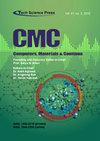Disease Diagnosis System Using IoT Empowered with Fuzzy Inference System
Talha Mahboob Alam, K. Shaukat, A. Khelifi, Wasim Ahmad Khan, Hafiz Muhammad Ehtisham Raza, M. Idrees, S. Luo, Ibrahim A. Hameed
求助PDF
{"title":"Disease Diagnosis System Using IoT Empowered with Fuzzy Inference System","authors":"Talha Mahboob Alam, K. Shaukat, A. Khelifi, Wasim Ahmad Khan, Hafiz Muhammad Ehtisham Raza, M. Idrees, S. Luo, Ibrahim A. Hameed","doi":"10.32604/cmc.2022.020344","DOIUrl":null,"url":null,"abstract":"Disease diagnosis is a challenging task due to a large number of associated factors. Uncertainty in the diagnosis process arises from inaccuracy in patient attributes, missing data, and limitation in the medical expert’s ability to define cause and effect relationships when there are multiple interrelated variables. This paper aims to demonstrate an integrated view of deploying smart disease diagnosis using the Internet of Things (IoT) empowered by the fuzzy inference system (FIS) to diagnose various diseases. The Fuzzy System is one of the best systems to diagnose medical conditions because every disease diagnosis involves many uncertainties, and fuzzy logic is the best way to handle uncertainties. Our proposed system differentiates new cases provided symptoms of the disease. Generally, it becomes a time-sensitive task to discriminate symptomatic diseases. The proposed system can track symptoms firmly to diagnose diseases through IoT and FIS smartly and efficiently. Different coefficients have been employed to predict and compute the identified disease’s severity for each sign of disease. This study aims to differentiate and diagnose COVID-19, Typhoid, Malaria, and Pneumonia. This study used the FIS method to figure out the disease over the use of given data related to correlating with input symptoms. MATLAB tool is utilised for the implementation of FIS. Fuzzy procedure on the aforementioned given data presents that affectionate disease can derive from the symptoms. The results of our proposed method proved that FIS could be utilised for the diagnosis of other diseases. This study may assist doctors, patients, medical practitioners, and other healthcare professionals in early diagnosis and better treat diseases. © 2022 Tech Science Press. All rights reserved.","PeriodicalId":10440,"journal":{"name":"Cmc-computers Materials & Continua","volume":"12 4","pages":""},"PeriodicalIF":1.7000,"publicationDate":"2022-01-01","publicationTypes":"Journal Article","fieldsOfStudy":null,"isOpenAccess":false,"openAccessPdf":"","citationCount":"19","resultStr":null,"platform":"Semanticscholar","paperid":null,"PeriodicalName":"Cmc-computers Materials & Continua","FirstCategoryId":"94","ListUrlMain":"https://doi.org/10.32604/cmc.2022.020344","RegionNum":4,"RegionCategory":"计算机科学","ArticlePicture":[],"TitleCN":null,"AbstractTextCN":null,"PMCID":null,"EPubDate":"","PubModel":"","JCR":"Q3","JCRName":"COMPUTER SCIENCE, INFORMATION SYSTEMS","Score":null,"Total":0}
引用次数: 19
引用
批量引用


